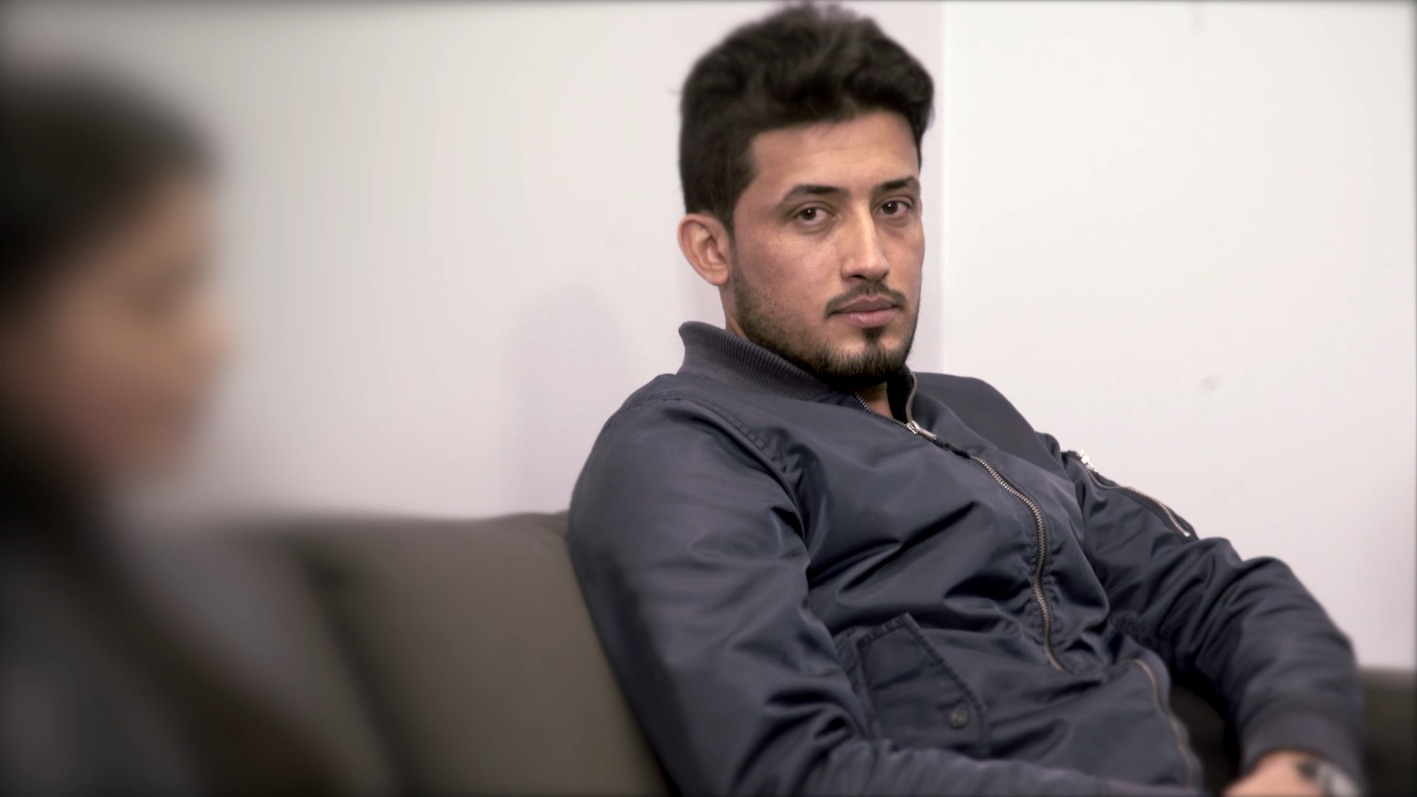REFUGEE
CONVERSATIONS
|
|
INTRODUCTION
REFUGEE
CONVERSATIONS / PAKOLAISKESKUSTELUJA is a 90-minute
documentary film. Its themes are: refugees, racism,
xenophobia, Islam, Christianity and compassion — or the lack
of it.
What is the meaning and role of these in Finland, a country which according to many studies is the happiest country in the world? The film is written and directed by Teemu Mäki, produced by Merja Ritola / Greenlit Productions. There's a lot of music in the film, composed by Max Savikangas. MORE INFO
The film, REFUGEE CONVERSATIONS, is based on a radio piece called Pakolaiskeskusteluja — radiofoninen dokumentti. The radio piece was a 56-minute long audio work, commissioned by YLE, the Finnish Broadcasting Company, and I made it with composer Max Savikangas in Winter of 2016–2017. The 92-minute film, which we made three years later, is a much broader piece than the radio work was. It's a documentary film, but it uses also the means of experimental film, media art and cinematic essay. It consists of five different materials. The first material are the interviews. In the Fall of 2016 I interviewed three Iraqi men — Bariq Hameed, Atheer Munder Saeed and Badr Khudhair Hayal — for the radio piece. They had come to Finland as adults seeking asylum. The interpreter in these interviews was an anonymous interpreter, who was born in Iran, but came to Finland as a child with her refugee parents. She has lived most of her life in Finland and has Finnish citizenship. Three years later, when we were making the film, I interviewed them again, to find out what had happened, how their lives had changed and how the way they are treated has changed during their stay in Finland. And whether they had been granted asylum or not. The second material in the film are statistics. The film presents a wide variety of numerical facts I picked from the official statistics of European Union and Finland. These numbers tell about refugees, immigration, Islam, income disparity and safety in Finland and elsewhere. The citations were recorded in a radio studio, as spoken or performed by YLE's newsreader Jussi-Pekka Rantanen, reporter Anna-Maria Talvio and actor Joonas Heikkinen. Also I spoke some of the citations. The third significant material type in the film is hate speech — or so-called anti-immigrant voices. The film quotes writings and speeches of xenophobic activists and racist politicians. Not to boost their ideology, but expose it to critical thought. Some anti-immigrant persons even speak with their own voices in the film, in fragments I have culled from television news and from video clips that racist organisations have uploaded online. The fourth important material in the film is music. The radiophonic work was composed from music, sounds and spoken word. That become in organic part of the film too, because I used the radiophonic work as the soundtrack of the first part of the film. For the film Max Savinkangas also composed a new chamber piece, Maxams, which is also heard in the film in its entirety. The music in the film is played by Veli Kujala, quarter tone accordion, Max Savikangas, viola, and Sampo Lassila, double bass. The fifth ingredient are pictures — the kind of pictures, which are not derived from the interviews and also do not just simply illustrate what is said in the dialogue. For example photos of old church paintings are this kind of material. We also perform a poem by Bertolt Brecht in the film, and we do it twice. Helsinki 24.1.2020, TEEMU MÄKI
CRITIQUES
Hanna Telakoski: "Teemu Mäen Pakolaiskeskusteluja näyttää vihan ajassamme – arkinen ja abstrakti kohtaavat kokeellisesti". Kulttuuritoimitus, 20.5.2020. If the link doesn't work anymore, you can find a PDF-version of the critique HERE. |
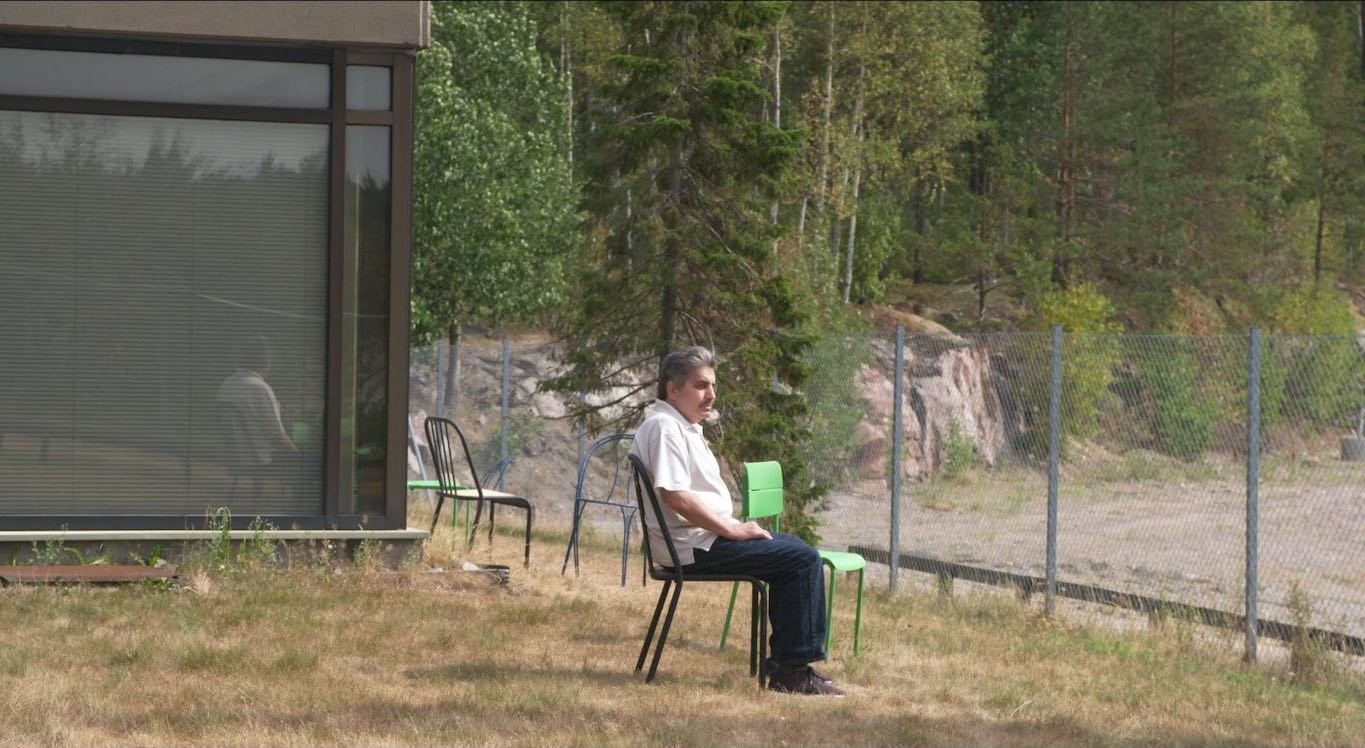
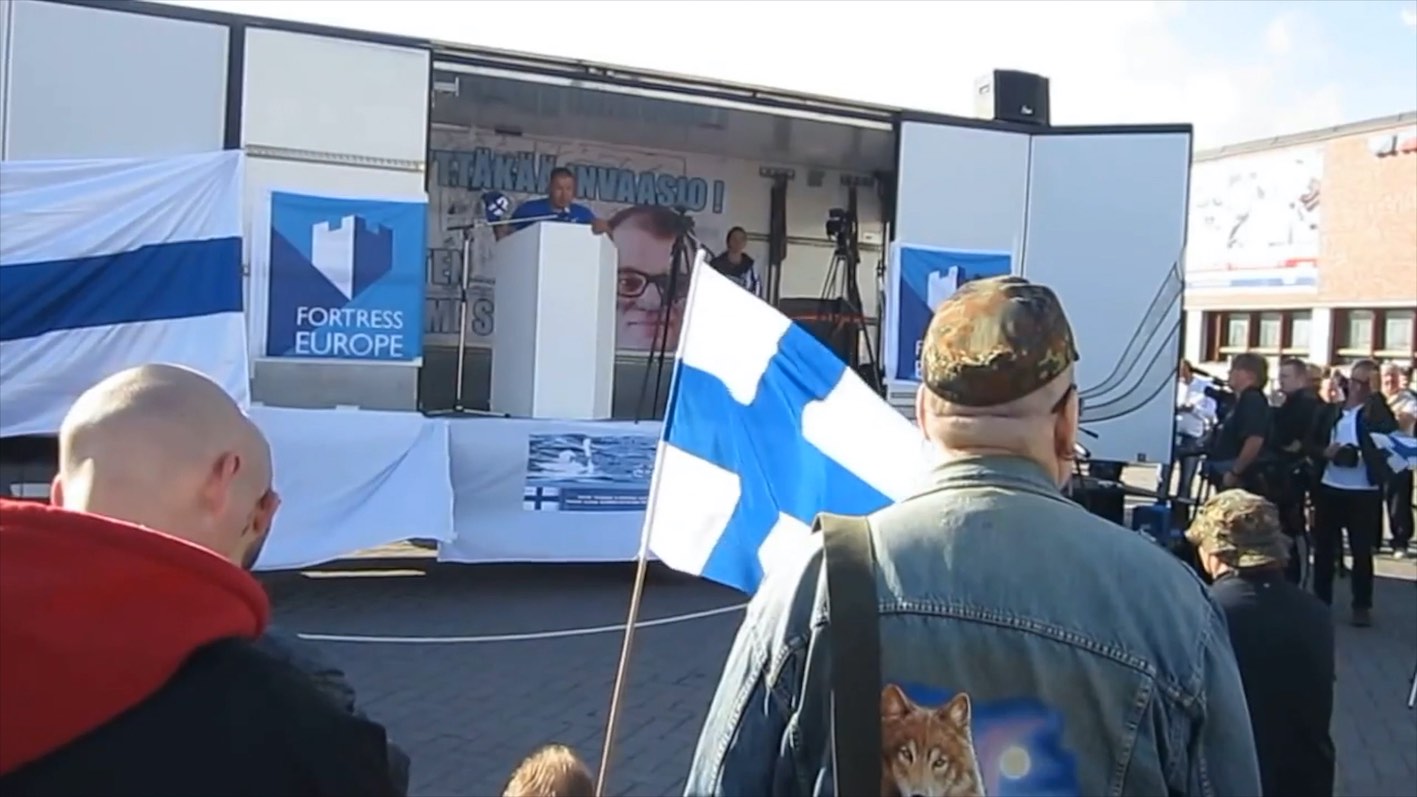
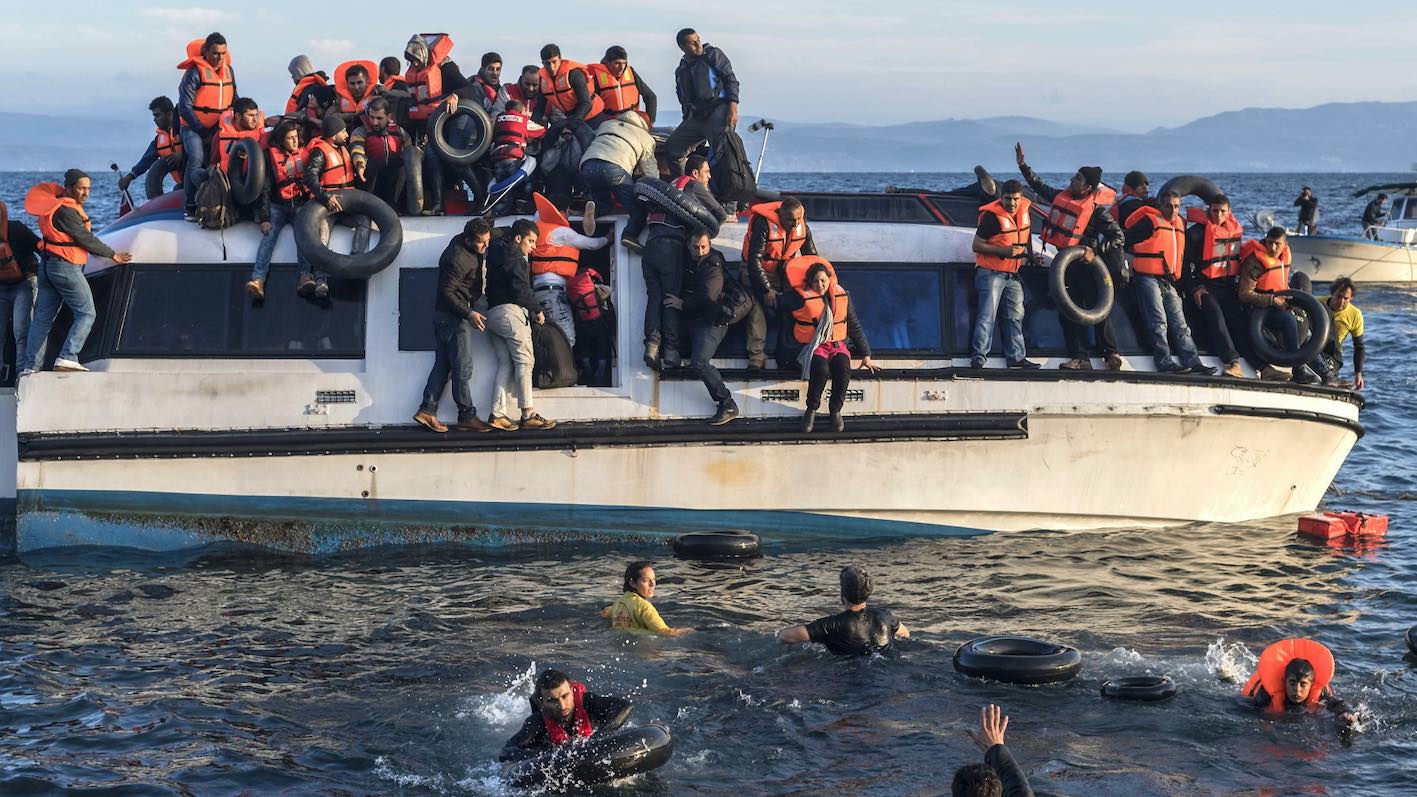
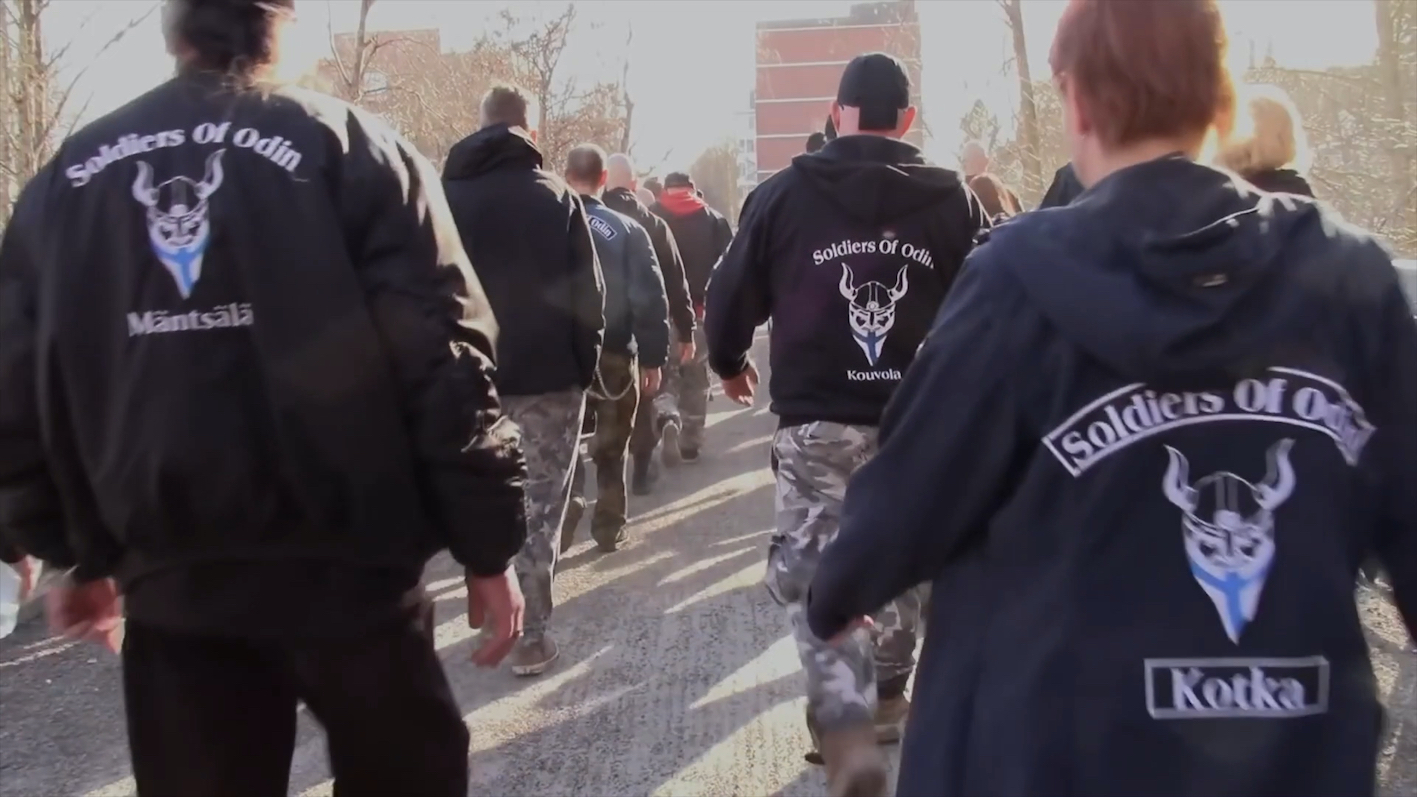
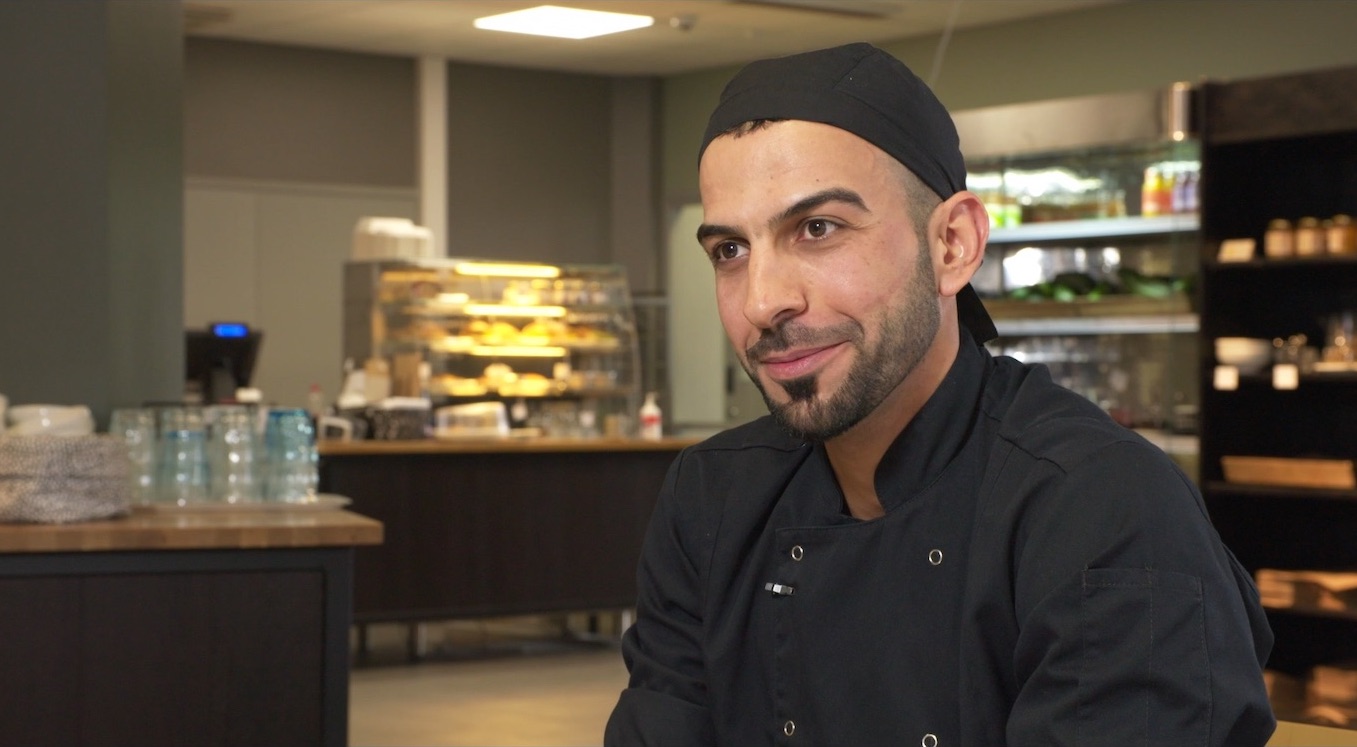
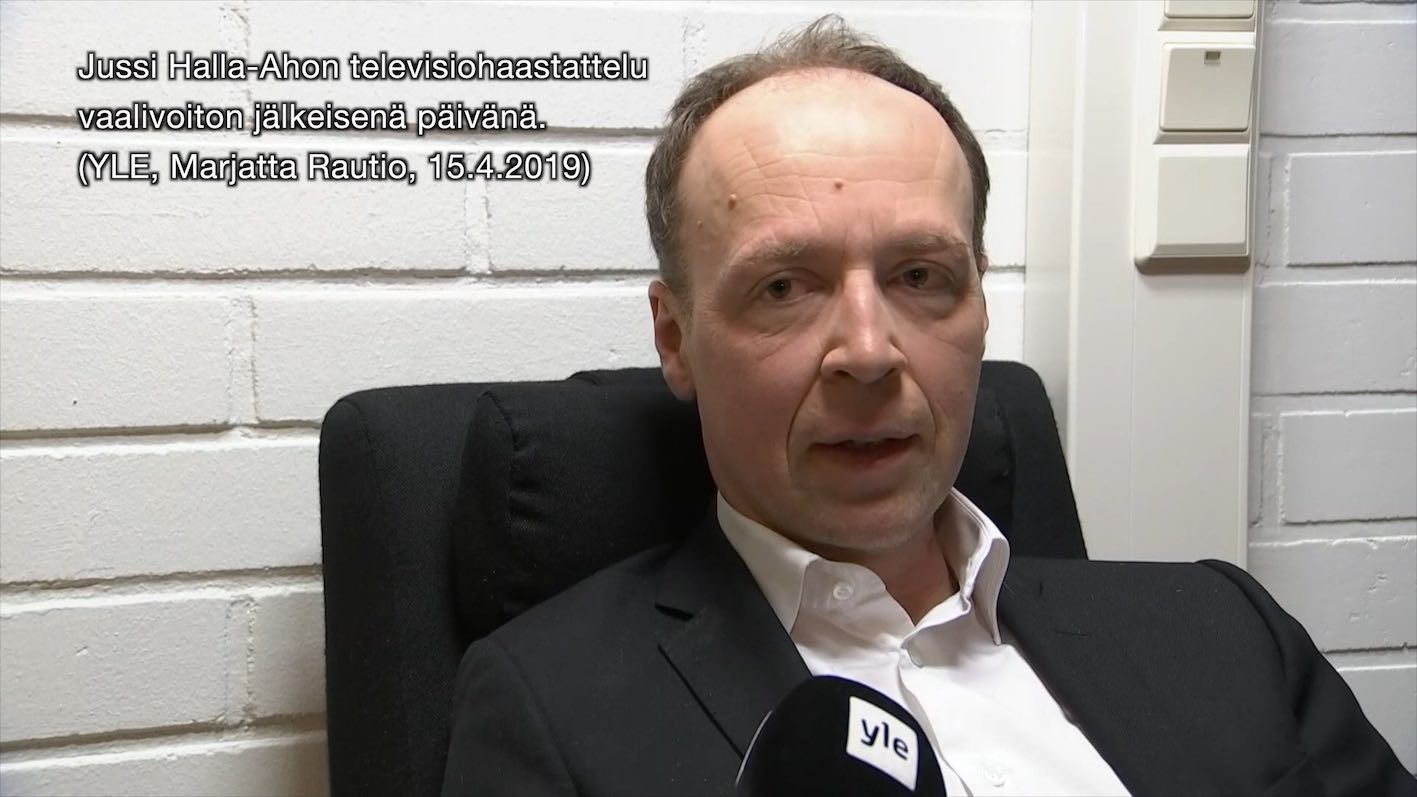
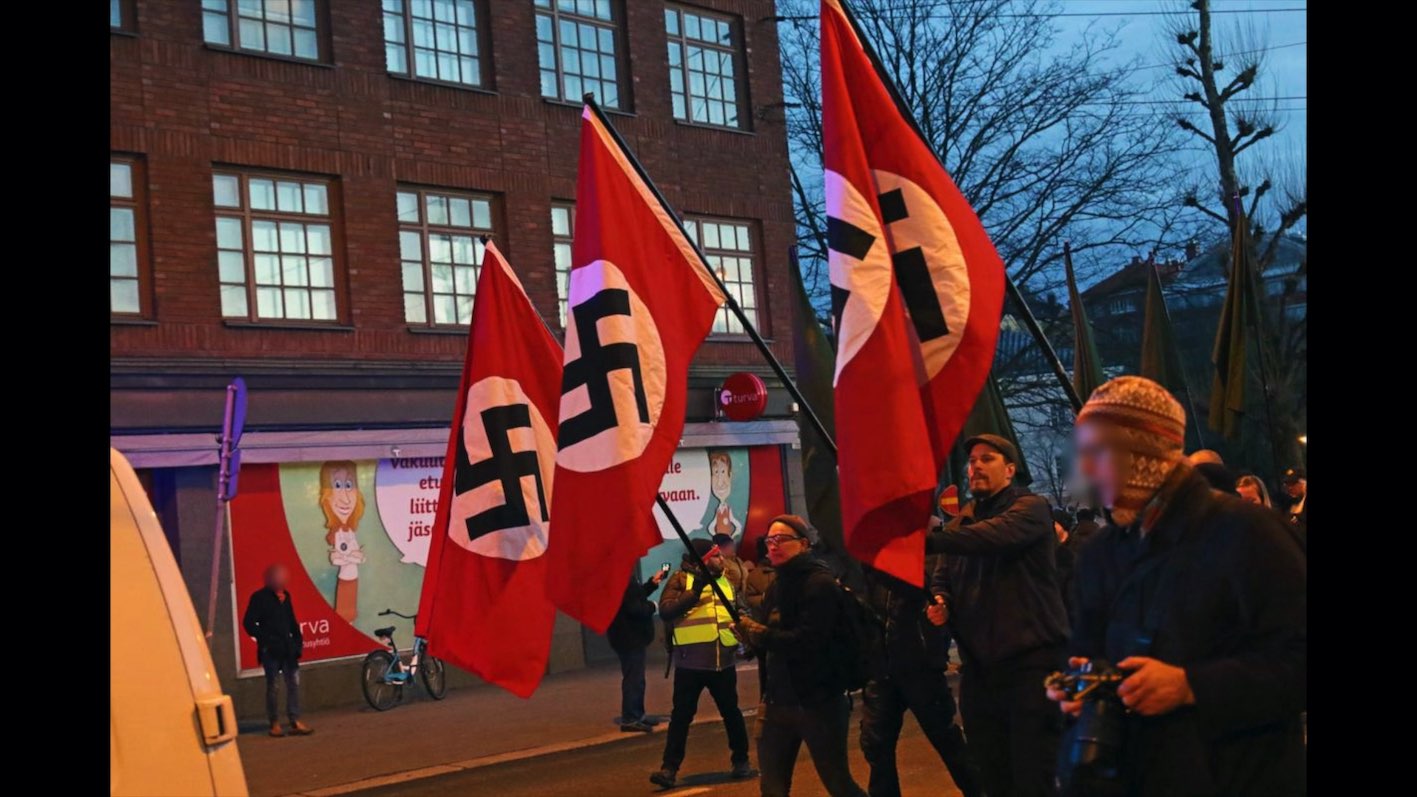
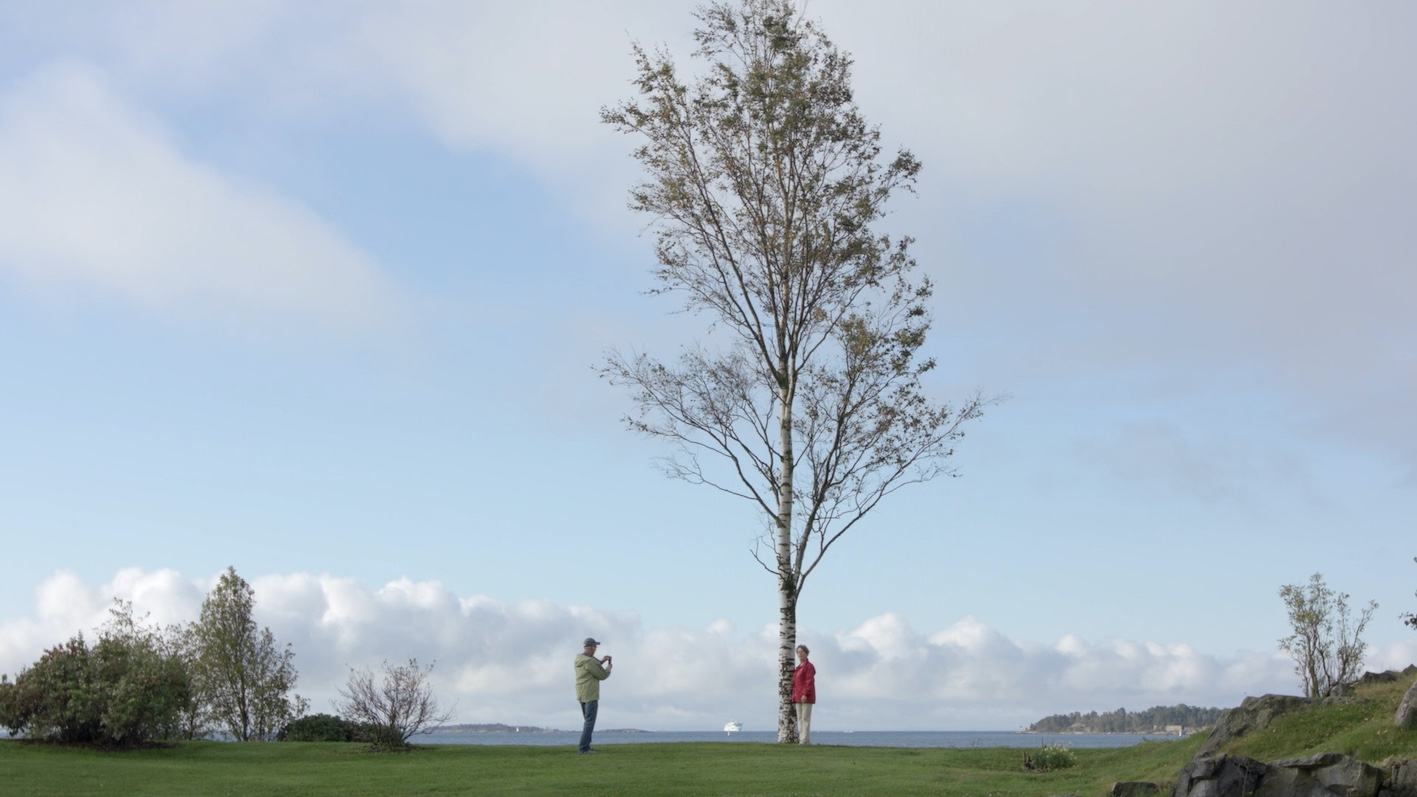
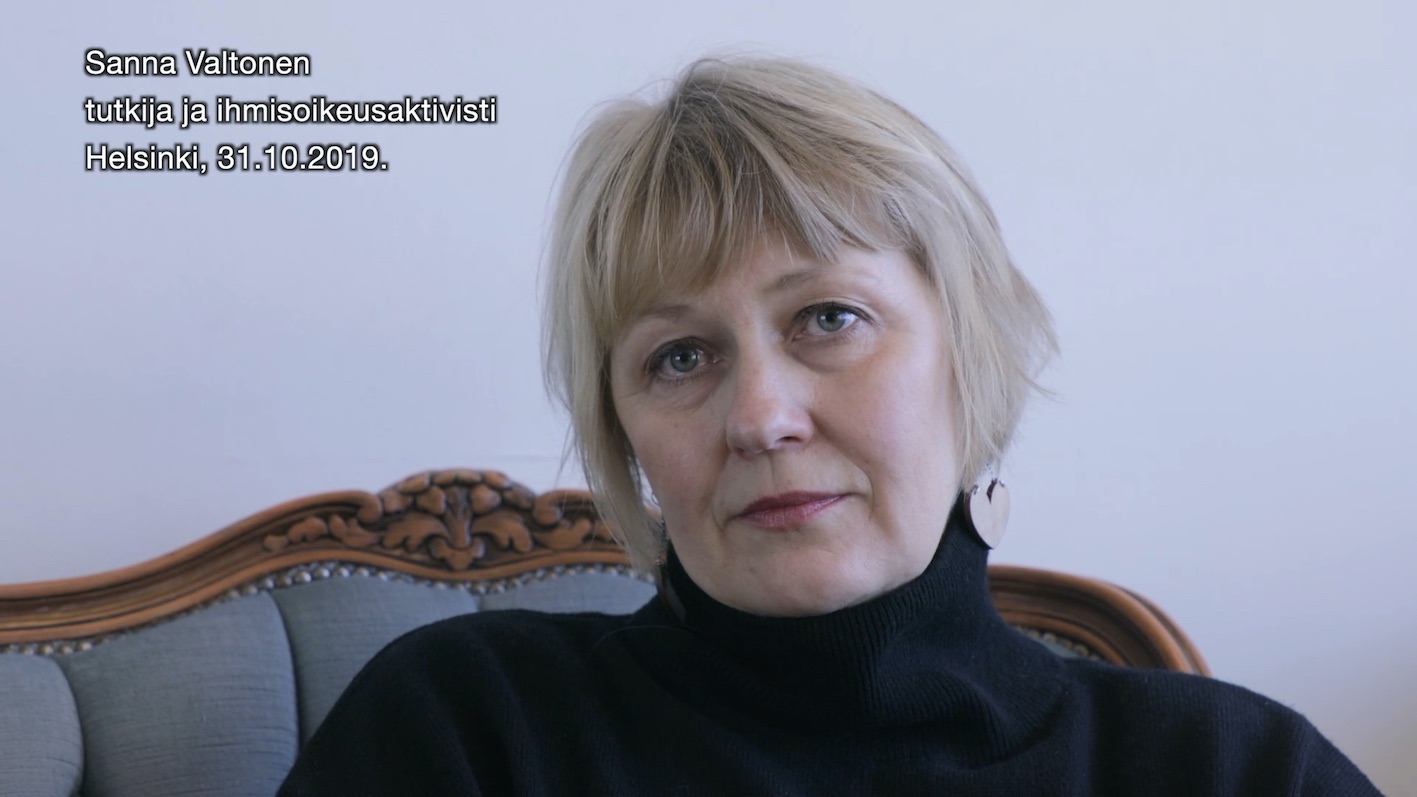
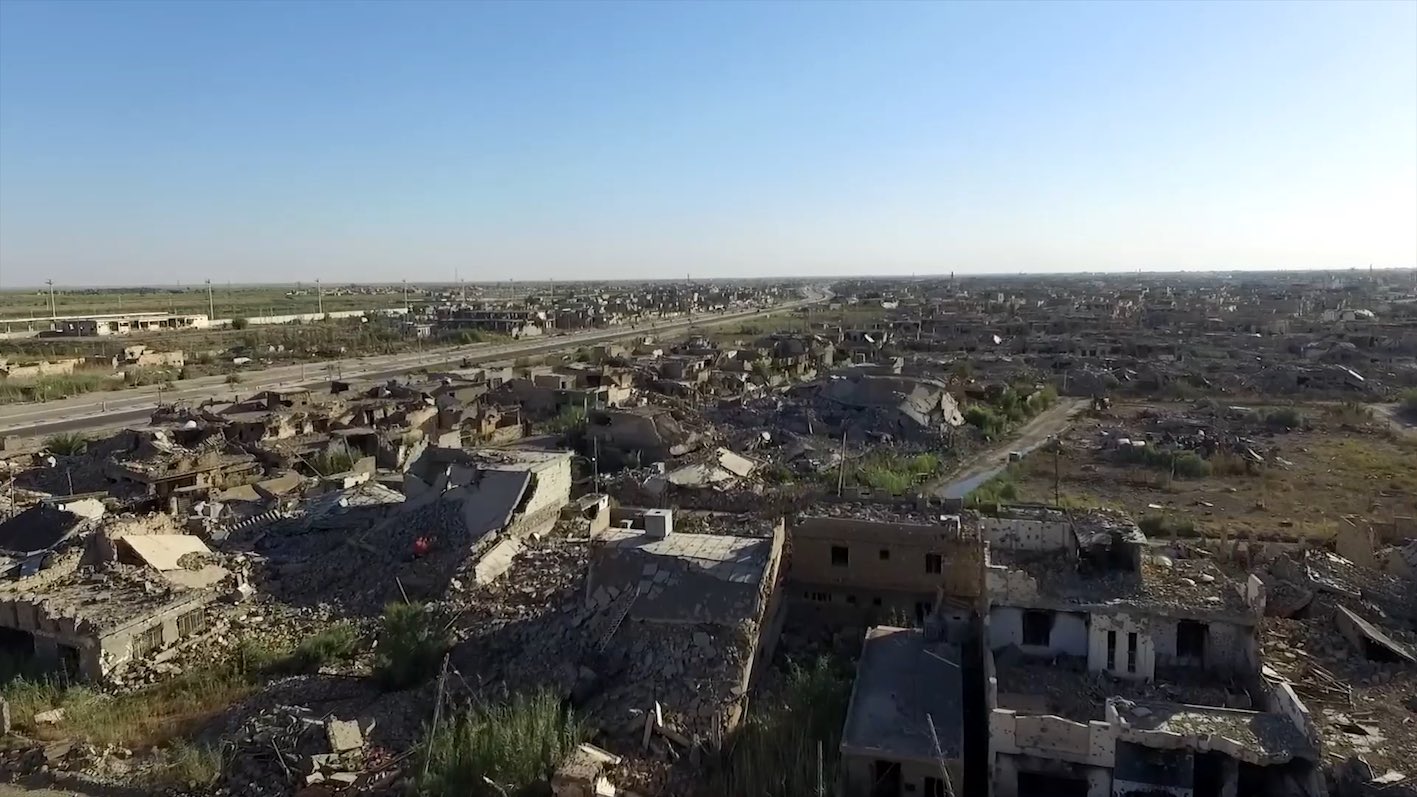
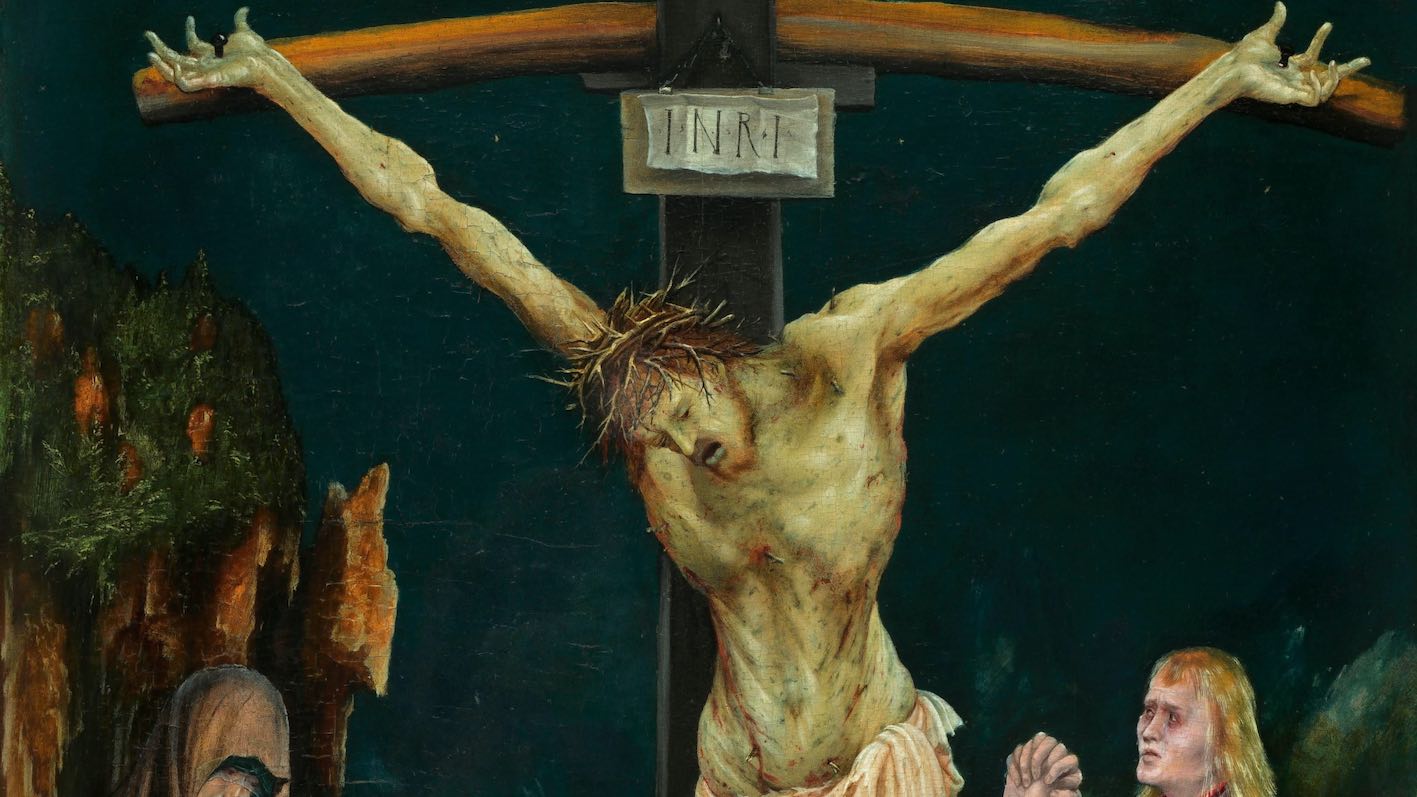
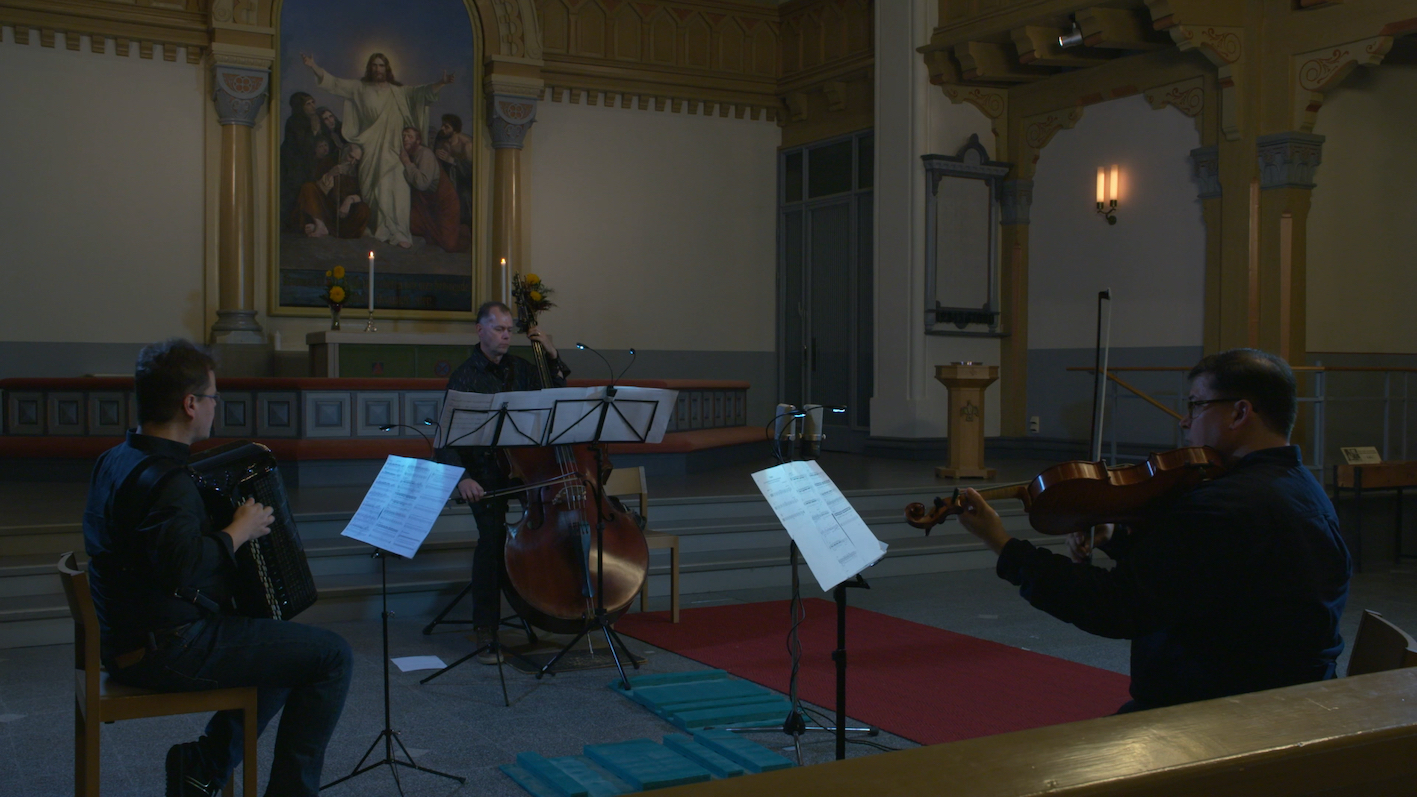
| CREDITS
Script and direction: Teemu Mäki
Script
& direction:
TEEMU MÄKI The interviewees: BARIQ HAMEED, BADR KUDHAIR HAYAL, ATHEER MUNDER SAEED, Maryan Abdulkarim, Sanna Valtonen Interpreters: An anonymous interpreter & Simon Hussein Al-Bazoon Speakers: Joonas Heikkinen, Teemu Mäki, Jussi-Pekka Rantanen, Anna-Maria Talvio Musical composition, field recording, editing of music & sound processing: Max Savikangas Radiophonic part directed by: Teemu Mäki & Max Savikangas Musicians: Veli Kujala — quarter-tone accordion Sampo Lassila — double bass Max Savikangas — viola Cinematography: Mikko Haiko Teemu Mäki Erol Mintas Jonatan Sundström Edit: Teemu Mäki & Niina Vornanen Production secretary: Arto Kultalahti Production assistant trainee: Lyly Kokkonen Sound recording: Max Savikangas Pentti Männikkö, YLE Joonatan Kotila, YLE Erol Mintas Music recording at Sipoo New Church: Pekka Mikael Laine Sound engineer: Anders Wiksten, YLE Sound mixing: Max Savikangas & Anders Wiksten Tiia Vestola Color grading: Jüri Shestakov / Revolver Film Archival materials, photos: Mstyslav Chernov, Mathieu Cugnot (European Parliament), Georgios Giannopoulos, Internet publications and advertisements of anti-immigrant movements, Teemu Mäki, Kalle Parkkinen / Lehtikuva picture agency, The Finnish Defence Force Archives, Mikko Stig / Lehtikuva picture agency, The Workers' Museum Vapriikki Archives, Markku Ulander / Lehtikuva picture agency, Varisverkosto, WikiLeaks, YLE Archival materials, videos: International Committee of the Red Cross (ICRC), Internet publications and advertisements of anti-immigrant movements, Oleksander Rasskazov (Helsinki by drone), US Army, Varisverkosto, WikiLeaks, YLE Paintings: Rudolf Schlichter, Portrait of Bertolt Brecht, 1926. Alexandra Frosterus-Såltin, copy of K. H. Bloch's Come to Me (the altarpiece of the New Church of Sipoo). Quinten Massijs, a detail from the painting Jesus Carrying His Cross, 1510–1515. A detail from an anonymous church painting, Jesus Is Nailed to a Cross (Église Saint-Julien de Pierry, Épernay, France). Matthias Grünewald, Small Crucifixion, 1511/1520. Matthias Grünewald, a detail from Isenheim Altarpiece, 1512–1516. Rogier van der Weyden, Jesus on the Hem of Virgin Mary, a detail from the Middelburg altarpiece, 1450. Giovanni Bellini, Madonna degli Alberetti – The Madonna of the Small Trees, 1487. Thanks: Auramo refugee center Helsinki, Bertolt Brecht, Karin Kreuz, Marjut Nieminen, Restaurant Pihka (Sörnäinen, Helsinki), Sepideh Rahaa, Saku Timonen, Sanna Valtonen, Varisverkosto, Jonna Wikström & Masala Youth Theatre. Production: Soila Valkama (radiophonic work) YLE Radio 1 / Ääniversumi Merja Ritola (film) Greenlit Productions Co-producer: Karin Reinberg / Revolver Film Funding: AVEK, Tuuli Penttinen-Lampisuo Taiteen edistämiskeskus YLE, Sari Volanen © TEEMU MÄKI & GREENLIT PRODUCTIONS OY 2020 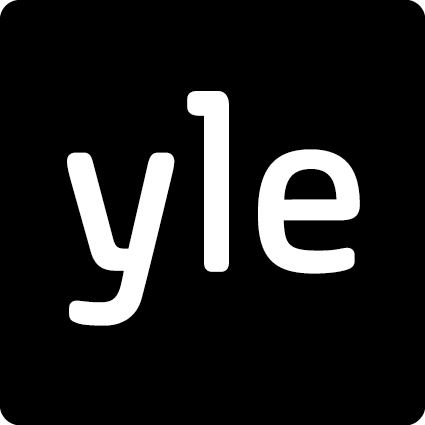
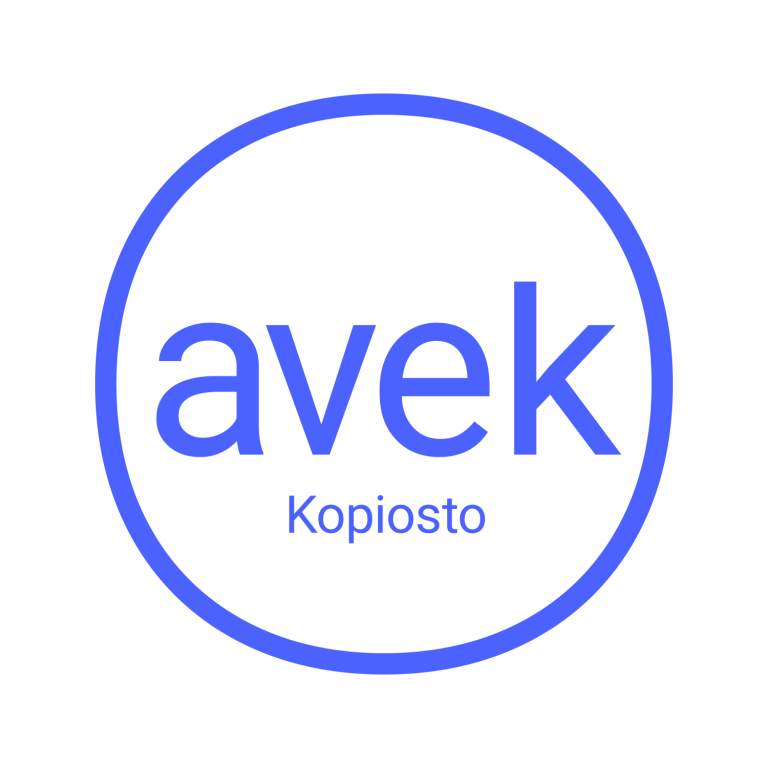   |
